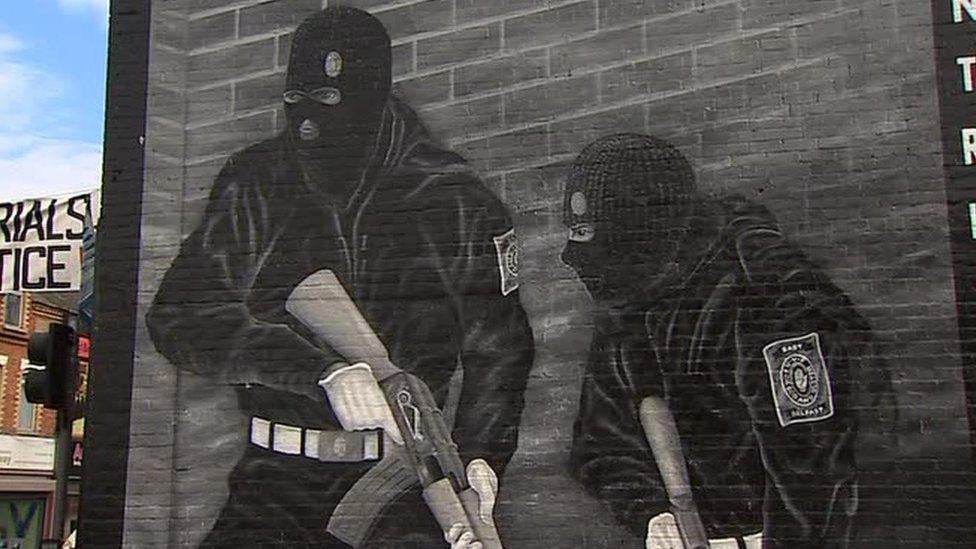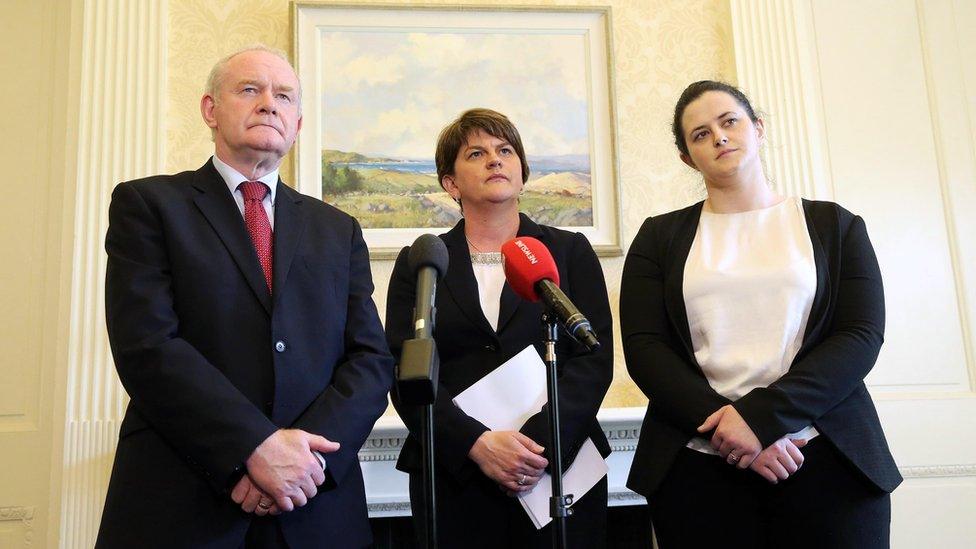Tackling paramilitarism: NI Executive sets out £50m plan
- Published

The plan includes a ranges of schemes aimed at deterring young people who are at risk of becoming involved with paramilitary groups
A £50m plan to tackle paramilitary activity in Northern Ireland has been published by the Stormont Executive.
It is the executive's response to the recommendations of an independent panel's report published last month.
Ministers have agreed to a range of educational and community schemes aimed at deterring young people who are at risk of involvement in paramilitarism.
They also accepted proposals to help ex-paramilitary prisoners applying to travel, to adopt and to access loans.
Decommissioning scheme
Ministers agreed to the panel's recommendation that they should contact authorities in the United States to speed up ex-prisoners visa applications.
The action plan said: "The executive will make representations to the US secretary of state to seek an expedited procedure for visa applications from ex-prisoners affiliated with groups on ceasefire."

Deputy First Minister Martin McGuinness, First Minister Arlene Foster and Justice Minister Claire Sugden said it was an "ambitious" plan
However, there is no immediate action planned on the panel's recommendation for the British and Irish governments to consider setting up a new paramilitary decommissioning scheme.
The executive's response said: "If there is a need identified for a decommissioning mechanism, both the government of Ireland and the United Kingdom have advised that they will consult to consider this recommendation."
'Criminal control'
In June, the panel made a total of 43 recommendations, external on how politicians, police and criminal justice agencies could tackle paramilitarism.
Ministers have now agreed to their suggestion that police resources and operations should be reviewed in "those communities most vulnerable to criminal control".
The panel had also asked Stormont's Department of Justice to ensure that the director of public prosecutions has the power to refer sentences that "he believes to be unduly lenient".
The executive's response said the Department of Justice will "consider" and "prioritise" this recommendation, within the scope of the recently announced Sentencing Policy Review.
It added that the department would "seek to bring proposals for consultation as soon as possible".
'Abolished'
The executive also agreed to work on several of the panel's recommendations aimed at speeding up the criminal justice process, including the abolition of some preliminary court hearings.
It said committal proceedings "in respect of those offences most frequently linked to paramilitary groups will be abolished".
The plan said the Police Service of Northern Ireland is seeking to appoint an experienced senior officer to work on developing "more effective criminal justice processes" in paramilitary and organised crime cases.
In a joint statement, First Minister, Arlene Foster, Deputy First Minister, Martin McGuinness and Justice Minister Claire Sugden described the plan as a "challenging and ambitious programme".
New commission
They said they were "determined to provide the leadership necessary to address this challenge and bring about a peaceful and prosperous future for our community".
The £50m will be spent on the initiative during the next five years, with half the money coming from Stormont and the rest from Westminster.
An independent review commission will be established by the British and Irish governments to monitor progress.
- Published7 June 2016

- Published17 December 2015
